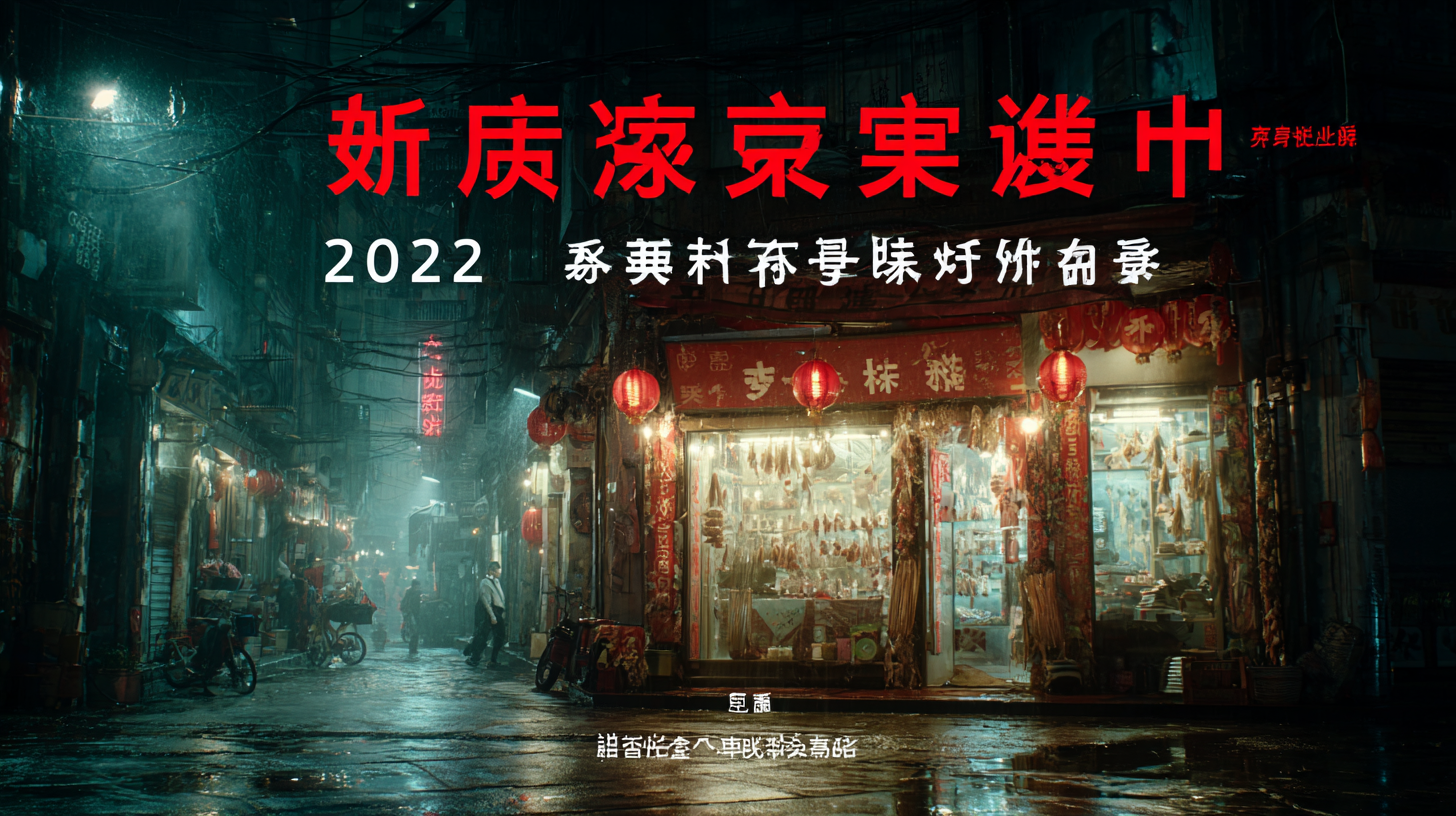As we look towards 2025, the landscape of the Chinese dried squid snack market is poised for significant transformation driven by advancements in technology. The global dried seafood market is projected to reach USD 19 billion by 2025, with a notable surge in demand for snacks that are not only flavorful but also uphold high quality and safety standards. According to a recent report by ResearchAndMarkets, the rising trend of snacking among health-conscious consumers is further propelling the popularity of products like Chinese dried squid snacks, which offer a unique blend of taste and nutrition. In this rapidly evolving market, selecting a quality manufacturer is critical, as it ensures the snacks meet consumer expectations for quality and innovation. This blog aims to explore the future technology trends influencing the Chinese dried squid snack experience and provide insights on how to identify and choose premium manufacturers in this burgeoning industry.

In 2025, the production of dried squid snacks in China is set to undergo a remarkable transformation, driven by emerging technologies. One of the most significant advancements is the adoption of artificial intelligence (AI) in production processes. AI algorithms can optimize drying times and temperatures, resulting in enhanced texture and flavor retention. This technology not only improves product quality but also reduces energy consumption, making the manufacturing process more sustainable.
Additionally, automation and robotics are poised to revolutionize the handling and packaging of dried squid snacks. Automated systems can streamline the sorting and packaging processes, ensuring consistent product quality and reducing labor costs. By integrating machine learning, these systems can also adapt to consumer preferences, allowing for customized products that cater to regional tastes. The fusion of these technologies is paving the way for a new era in snack production, one that balances efficiency with quality, ultimately enhancing the consumer experience in the ever-evolving market of dried squid snacks.

As we look towards 2025, the landscape of snack consumption in China is poised to undergo a significant transformation, particularly in the realm of dried squid snacks. The incorporation of artificial intelligence and machine learning is set to revolutionize the flavor experience for consumers, making it more personalized and dynamic. Brands are tapping into AI technology to analyze consumer preferences and create uniquely tailored flavor profiles, allowing snack lovers to enjoy a customized tasting experience that aligns with their individual tastes.
To enhance the personalization of flavors, companies can utilize AI-powered solutions that track consumer preferences over time. By analyzing data on past purchases and flavor ratings, brands can intelligently suggest new variations or limited-edition flavors. This not only keeps consumers engaged but also fosters a deeper connection with the product.
Tips: When trying to offer personalized flavors, consider conducting surveys to gather initial consumer feedback on flavor preferences. Additionally, integrating a feedback loop post-purchase can help refine future offerings based on real-time data. Embracing these strategies will ensure a tailored snacking experience that meets the diverse palates of consumers.

In 2025, the snacking experience for dried squid in China is set to be revolutionized through innovative eco-friendly packaging solutions. As consumers become increasingly environmentally conscious, snack brands are recognizing the importance of using sustainable materials for their packaging. This shift not only appeals to eco-aware consumers but also helps reduce waste and carbon footprints associated with traditional packaging methods.
One exciting trend is the adoption of biodegradable packaging made from natural resources, which effectively decomposes without harming the environment. Companies are also exploring the use of recycled materials to create stylish yet sustainable designs. These innovations promote a circular economy, encouraging consumers to think about the lifecycle of their snacks.
Tip: When selecting dried squid snacks, look for brands that emphasize eco-friendly packaging. Check labels for certifications indicating sustainable materials.
Moreover, advancements in packaging technology allow for better preservation of freshness and flavor while reducing the reliance on plastic. Through the use of vacuum-sealing and modified atmospheric packaging, brands can extend the shelf life of their products, ensuring that consumers receive the best quality with minimal environmental impact.
Tip: Consider purchasing snacks from local brands that prioritize sustainability; this not only supports the environment but also boosts local economies.
In 2025, the experience of enjoying dried squid snacks in China is set to be revolutionized by the emergence of smart vending solutions. These cutting-edge vending machines aim to provide consumers with convenient access to their favorite snacks while prioritizing health and sustainability. By featuring a diverse range of dried squid products, these machines will cater to the growing demand for flavorful and nutritious snacking options. The integration of technology in vending solutions not only enhances user experience but also supports mindful purchasing habits, promoting a healthier lifestyle for snack enthusiasts.
Smart vending machines will also improve accessibility, strategically placed in high-traffic areas to reach a broader audience. By leveraging data and user feedback, these machines can offer personalized snack recommendations, ensuring that consumers find exactly what they’re craving. As consumers become more health-conscious, the transformation of traditional vending experiences into smart, user-oriented platforms signals a critical shift in the snack industry. As a result, the enjoyment of dried squid snacks will not only satisfy taste buds but will also align with the growing preference for nutritious and responsible snacking.
In the rapidly evolving landscape of food technology, blockchain presents an innovative solution to enhance transparency in the dried squid supply chain. As the global seafood market is projected to reach $155 billion by 2025, with a notable increase in demand for dried seafood snacks in China, the integrity of supply chains has never been more critical. According to a report by the Food and Agriculture Organization (FAO), nearly 30% of seafood is mislabelled, prompting a pressing need for traceability and trust in product quality.
Blockchain technology allows for secure, decentralized record-keeping that can track every stage of the dried squid's journey, from the ocean to the consumer's table. With 55% of Chinese consumers expressing concerns over food safety, integrating blockchain can help ensure that the dried squid they purchase is sourced responsibly and meets quality standards. Every transaction and condition is documented in real time, empowering consumers with information about the product's origins and handling. As major players in the snack industry begin to adopt this technology, we can expect a transformative shift towards greater accountability and enhanced consumer trust in 2025 and beyond.
